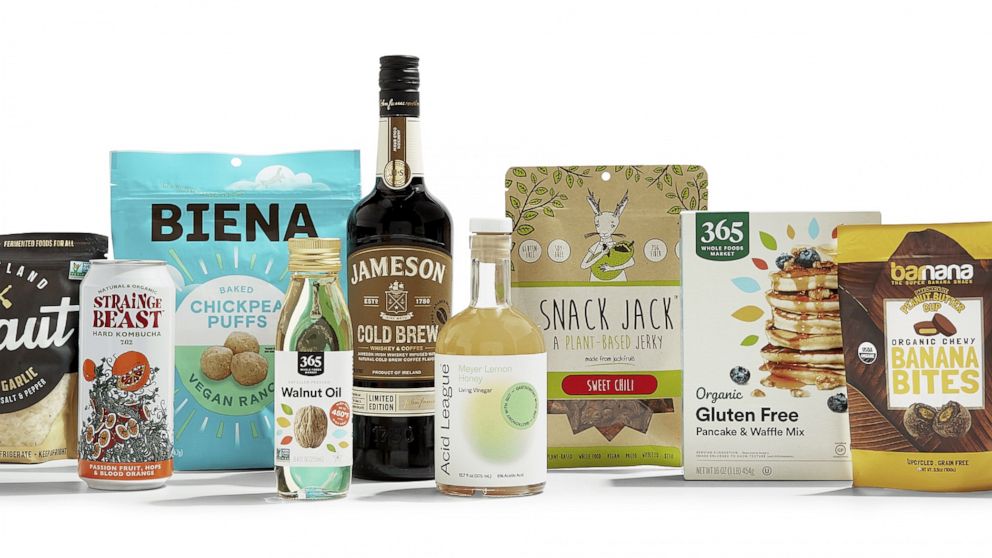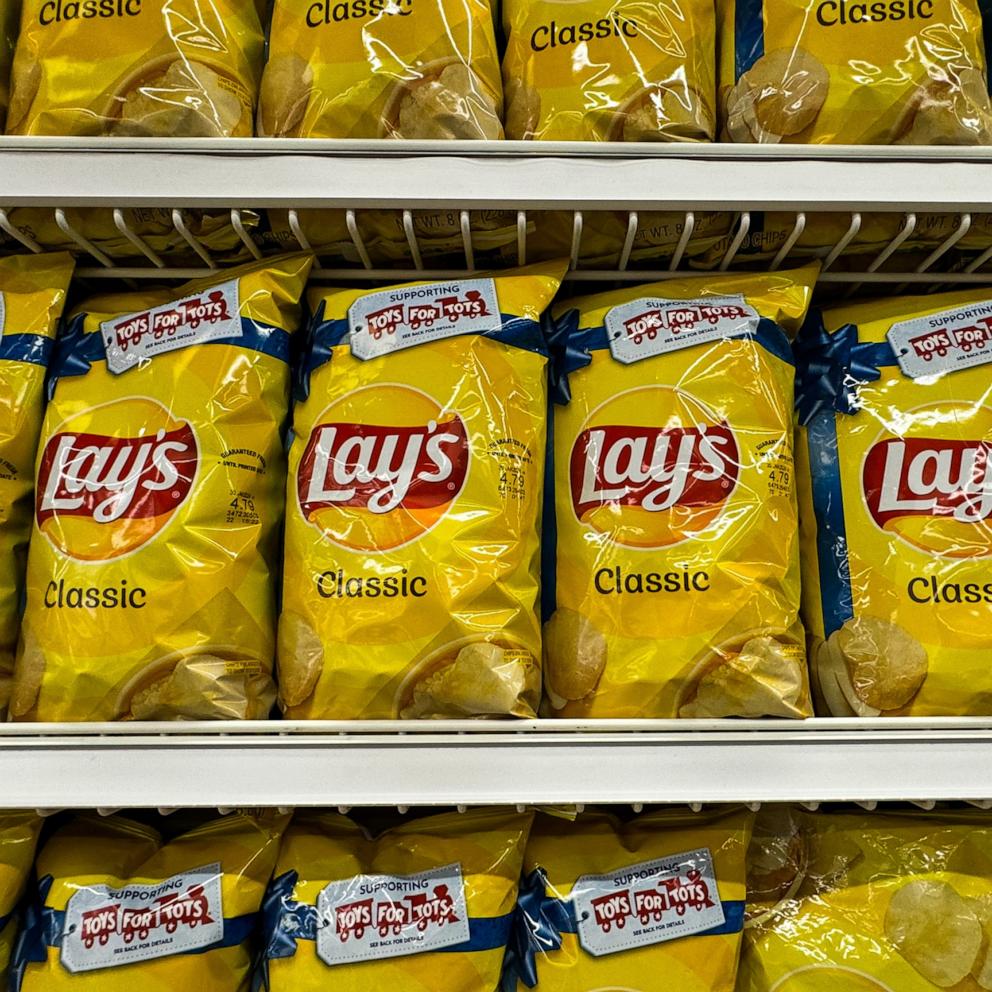Food and grocery trends to hit shelves in 2021 and what to expect

2020 prompted people to spend more time in their kitchens cooking at home and consider new purchases as they browsed for online grocery orders. Ultimately, many forged a different dynamic with food.
Food trend predictions lately have been largely influenced by life amid a global pandemic. But as 2021 kicks off, predictions are taking into account what people might want in a post-pandemic food world.
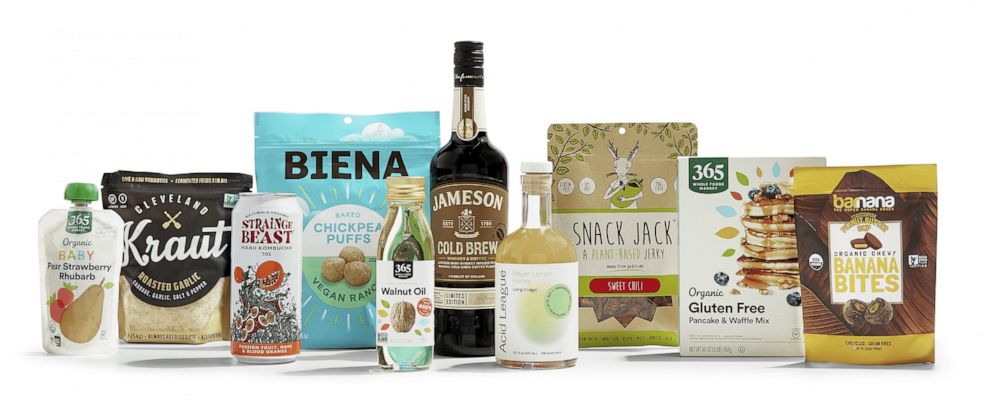
A team of experts from Whole Foods Market unveiled their top 10 anticipated food trends, which include everything from the most important meal of the day to more sustainable and upcycled products. The trends council -- composed of team members, local foragers, regional and global buyers and culinary experts -- compiled a thorough list based on sourcing, consumer preferences and brands.
"There have been radical shifts in consumer habits in 2020. For example, shoppers have found new passions for cooking, they’ve purchased more items related to health and wellness, and more are eating breakfast at home every day compared to pre-COVID," Sonya Gafsi Oblisk, chief marketing officer at Whole Foods Market, said in a statement. "Food trends are a sign of the times, and our 2021 trends are no exception."
Ryan Andrews, a registered dietician and principle nutritionist at Precision Nutrition, told "Good Morning America" that "between COVID-19 outbreaks at meatpacking plants and temporary grocery store food shortages," people are thinking more about "where food comes from."
Andrews predicted cooking at home will continue. "One survey indicated that 60% of Americans report cooking more often at home," he explained. "While reasons for this are multifactorial, some are learning basic food preparation skills for the first time."
He also said people will keep paying attention to food safety in their own kitchens, whether it's washing hands, cleaning surfaces or rinsing produce.
Check out the full Whole Foods Market list of 2021 trends that represent what’s new and next for the year ahead.
Well-being: supplements and superfoods
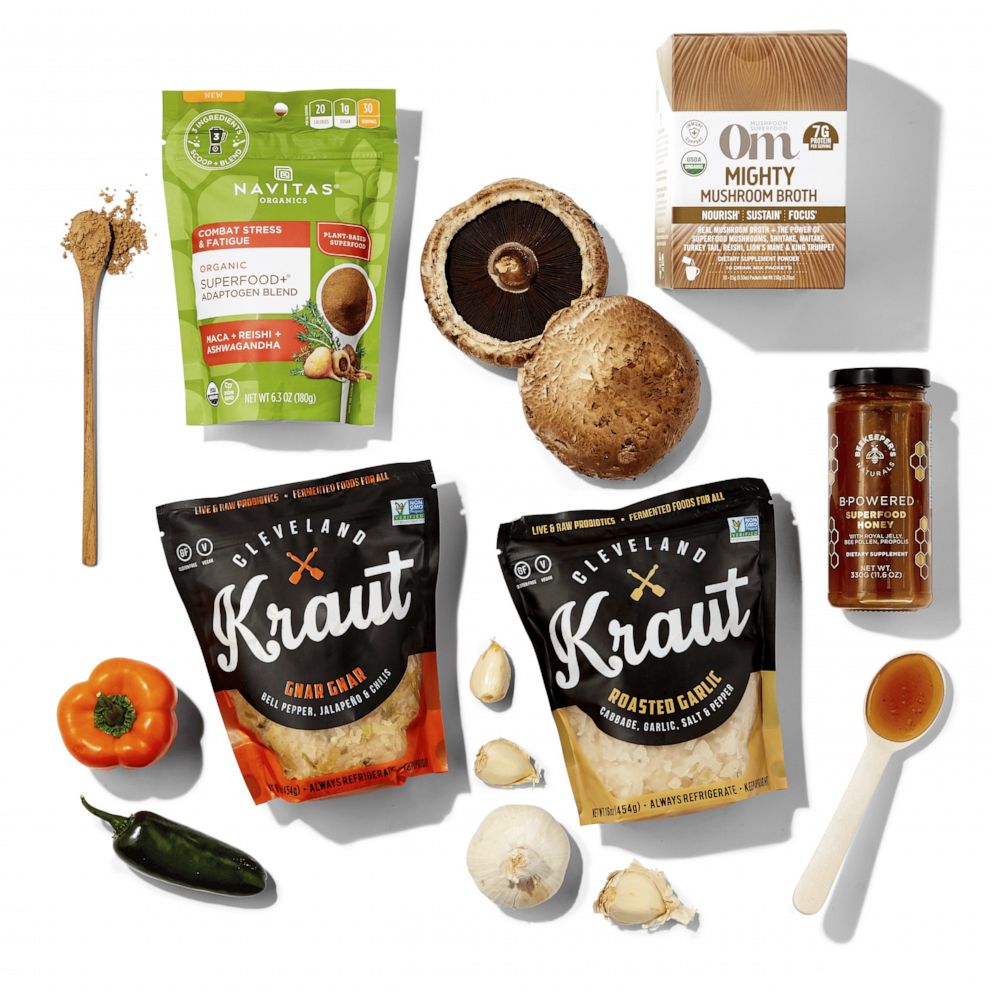
The lines between the supplement and grocery aisles have blurred, "and that trend will accelerate in 2021" Whole Foods said in the trends release. Expect to see superfoods, probiotics, broths and sauerkrauts as suppliers incorporate "functional ingredients like vitamin C, mushrooms and adaptogens to foster a calm headspace and support the immune system."
Enhancing the Most Important Meal of the Day
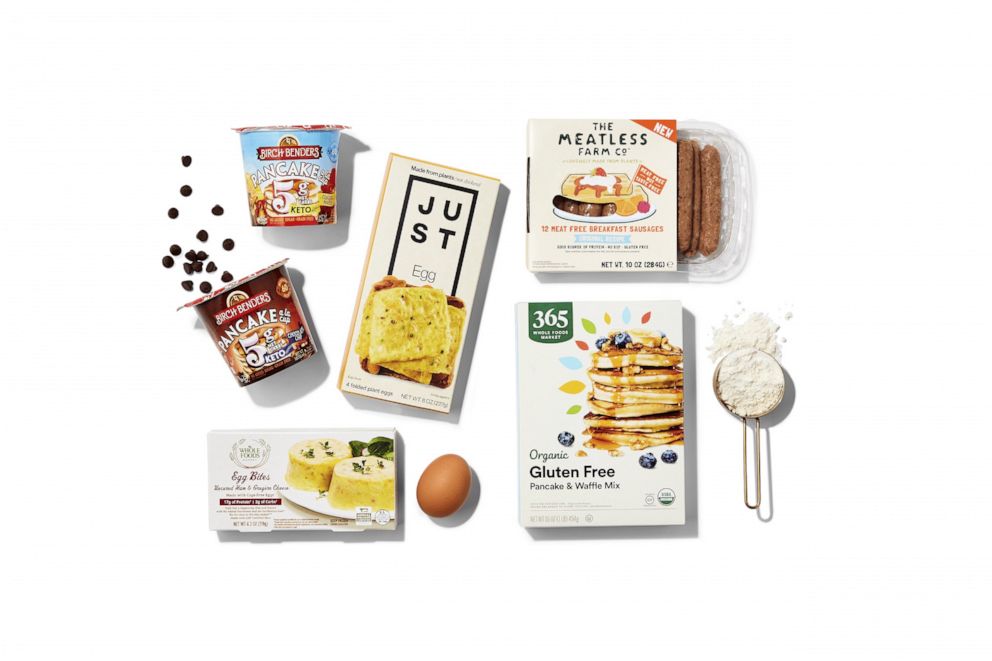
As people continue to work from home, breakfast has gotten renewed attention beyond a protein bar or cup of coffee. Whole Foods said there's a "new lineup of innovative products tailored to people paying more attention to what they eat in the morning. Think pancakes on weekdays, sous vide egg bites and even 'eggs' made from mung beans."
Spiced Up Basics and Staples
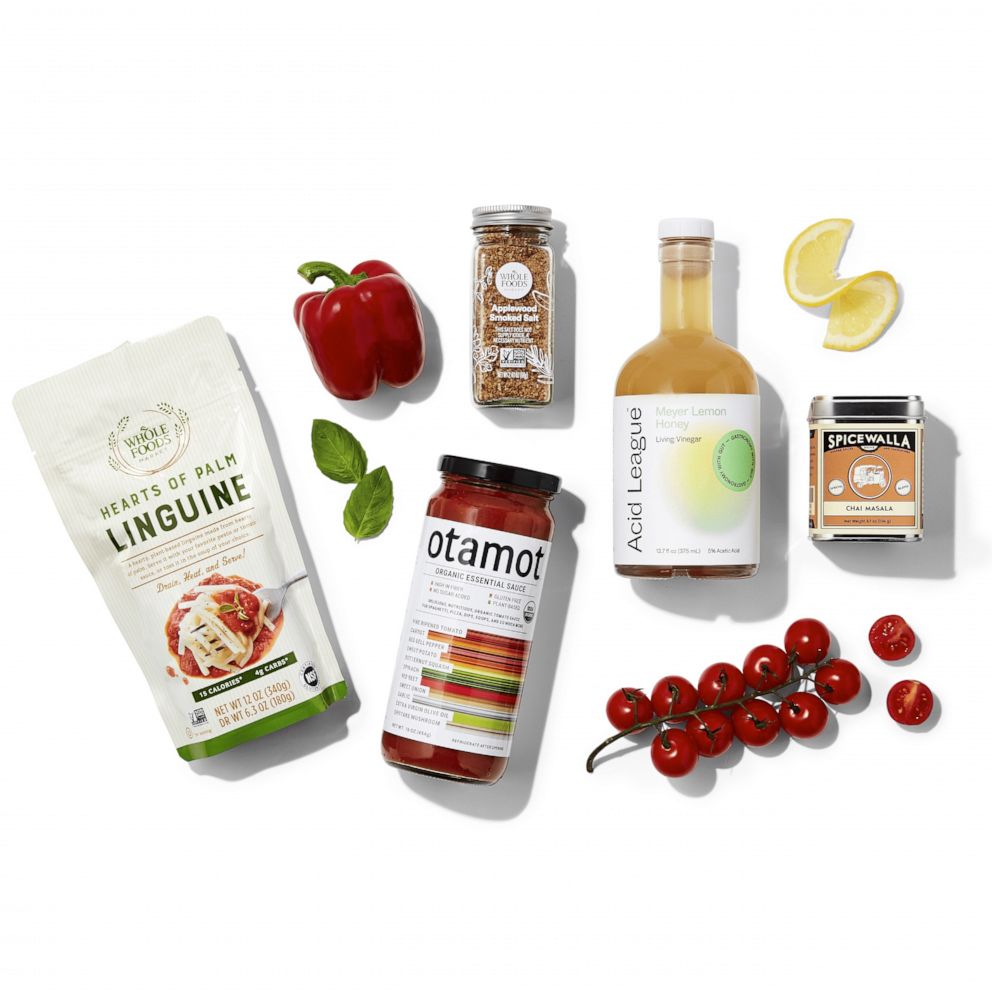
Home cooks could be looking for new twists on traditional pantry staples. From pastas and sauces to spices and soups, basics will seek to be bolder. "Get ready for reimagined classics like hearts of palm pasta, applewood-smoked salt and 'meaty' vegan soups," Whole Foods hinted.
Java Jolt with Coffee Infused Foods
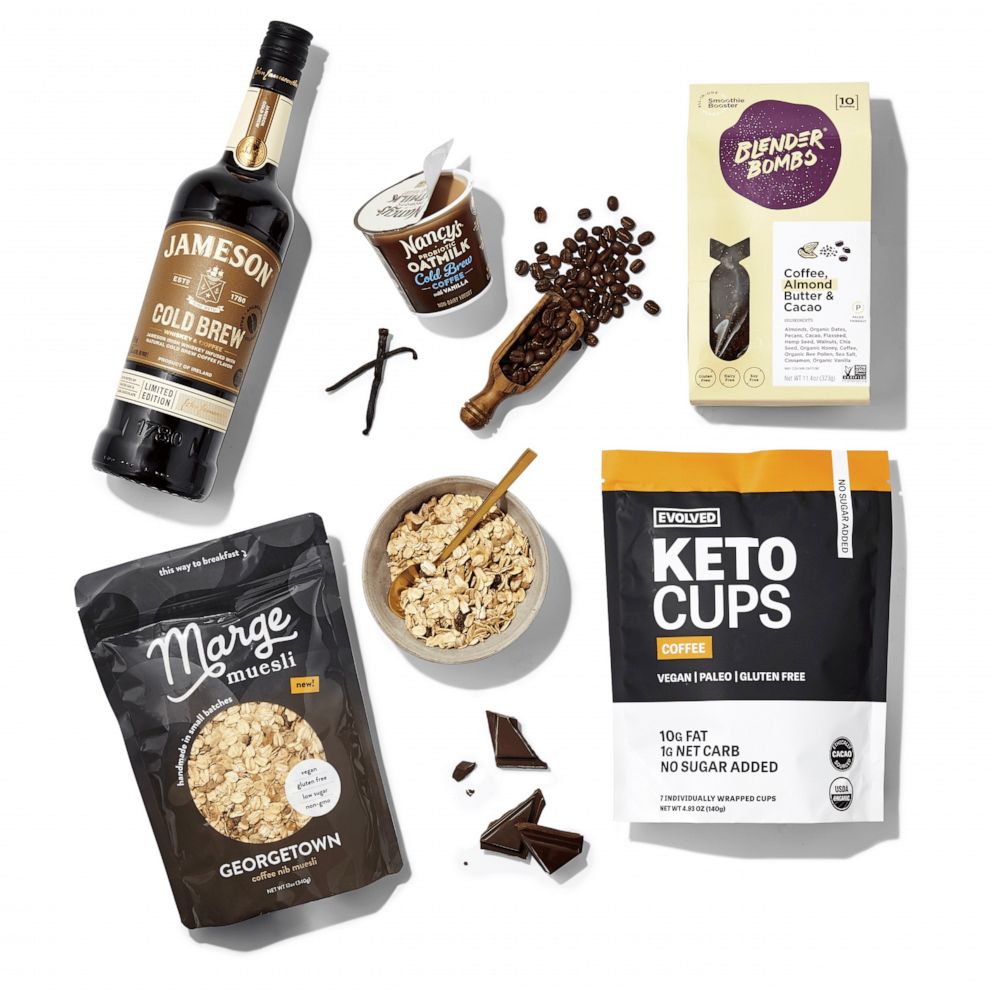
Coffee is more than just a beautiful brewed beverage these days. Now, java is being added to bars, granolas, smoothie boosters, booze and even yogurts.
Don't Call it Baby Food
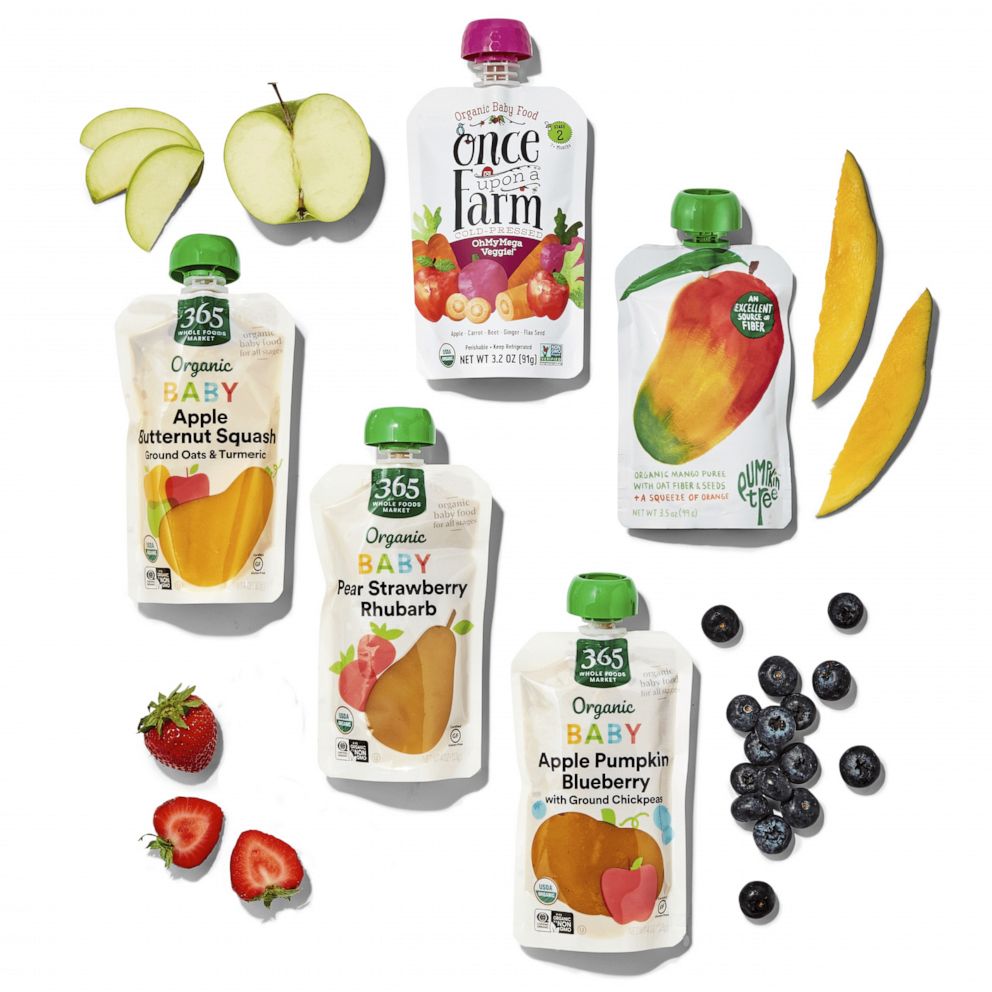
Thanks to some inspired culinary innovation, parents have never had a wider or richer range of ingredients to choose from for kids. Portable, on-the-go squeeze pouches full of rhubarb, rosemary, purple carrots and omega-3-rich flaxseeds are all options for little eaters who crave big flavor.
Upcycled Foods

Peels and stems aren't just for composting. Whole Foods has seen a huge rise in packaged products that use neglected and underused parts of an ingredient as a path to reducing food waste. Upcycled foods can help to maximize the energy used to produce, transport and prepare that ingredient.
Slick Options Other than Olive Oil
Whether it's a new high-heat oil to splash in a skillet or a light, nutty and fruity varietal for dressings, home cooks are branching out with oils that each add unique flavor and properties. Walnut and pumpkin seed oils lend a delicious nutty flavor, while sunflower seed oil is hitting the shelves in a bunch of new products and is versatile.
Boozy Kombucha
Hard seltzer may still have some more hours left in the sun since Whole Foods predicted the boom in 2018, but now alcoholic kombucha is making a strong flex on the beverage aisle. Hard kombucha checks all the boxes: It’s gluten-free, it’s super bubbly and can be filled with live probiotic cultures.
Chickpeas Checks Boxes Beyond Hummus
"You can chickpea anything. Rich in fiber and plant-based protein, chickpeas are the new cauliflower," Whole Foods experts believe. With products like chickpea tofu, chickpea flour and even chickpea cereal popping up, this trend is on track to make a big impact.
Fruit and Veggie "Jerky"
All kinds of produce from mushrooms to jackfruit are being served jerky-style, providing a new, shelf-stable way to enjoy fruits and veggies. The produce gets dried at the peak freshness to preserve nutrients and flavor, plus suppliers are adding sweet, salty and spicy finishes to give it a gourmet touch.
Other Key Takeaways
Andrews explained that the full list of trends from Whole Foods' experts "support the constant juggling act people face between wanting to make food choices that support personal health while also not spending exceptional amounts of time in the kitchen."
All in all, he said "it's an exciting time because with increased concern and awareness among eaters, I predict this will lead to improvements in food chain worker welfare, animal welfare, and ultimately lead to a more humane and equitable food system."
Here are his top 3 predictions for food trends in 2021: Making food choices that support environmental sustainability; Improving personal health through nutrition; Eating more protein from plant foods.
Happy shopping, cooking, eating and drinking!
